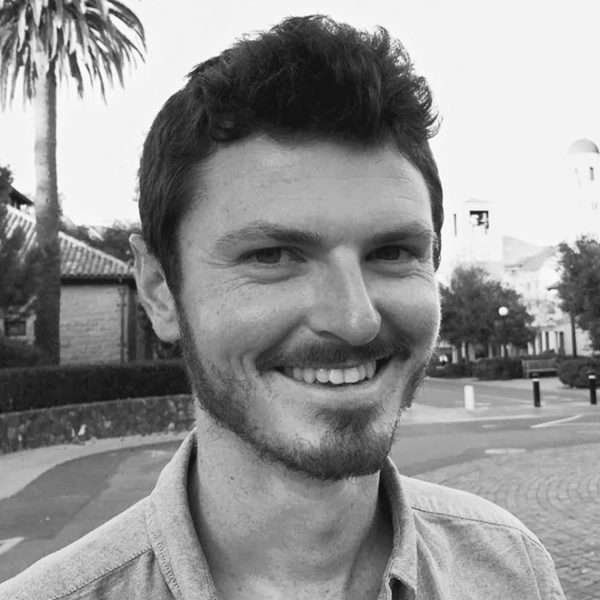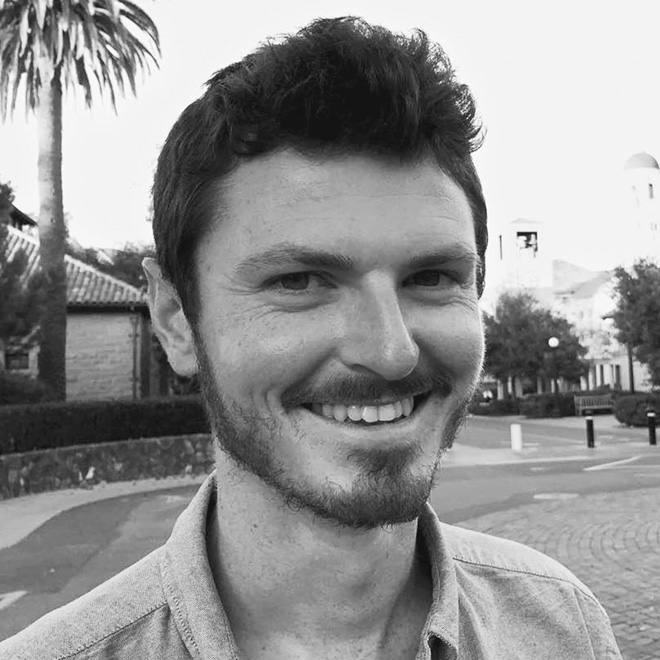Pau Guinart PhD ‘18 and Terence Theisen PhD ‘20 are the co-chairs of the Graduate Student Council (GSC), a body aimed at integrating the social lives of graduate students with the academic rigor of Stanford. Guinart studies Iberian and Latin American cultures, and this coming year will be his third year serving on the GSC. Theisen studies microbiology and immunology and has been involved with the GSC since arriving at Stanford. The Stanford Daily sat down with Guinart and Theisen to discuss their vision for the GSC next year.
The Stanford Daily (TSD): What is the GSC and who comprises it?

Terence Theisen (TT): We have 15 elected members representing the nine different schools; there’s two from engineering, and then there’s five at-large members representing the whole student body. Our website, which we are in the process of updating, has that information for who the specific [representative] is for each constituency. We have that set of 15, and then we also have a couple extra officer positions. We have meetings every week on Wednesdays nights at 6 where we provide dinner, we’ll do funding requests and we’ll bring up different agenda items. We’re trying to implement a system so that if people have stuff they want to discuss, they have that to be considered on meeting agendas as well.
TSD: What are some of the overall missions and goals of the GSC?
TT: Just raising awareness of the GSC and what it does for grad students, because of the structure of Stanford being so decentralized in terms of a lot of autonomy between the departments. I think that’s really important for us just to remind graduate students, there is a central body that connects us all and looks out for all of us.

Pau Guinart (PG): I think the GSC has been kind of invisible for some people. I think the reason it hasn’t been that used for students is because it’s not been out there enough. One of the things we agree on is for next year, is that from GSO [Graduate Student Orientation], have the GSC there and, for example, put our calendar out. Our calendar is a great resource that is not that used. For example, next year, one practical thing that we can help with — because of the housing situation — there is a little segment of students who may not have access to the community associate events, but these people need to have a social life and possibilities of mingling and all sorts of events, and our calendar is that. One of the things that we always ask of student organizations that come to us for funding is that the event has to be on the calendar and has to be open to all grad students. There are events almost every day.
TSD: What are some of the big events that the GSC will plan for next year?
TT: We have our staple events. Last week, we completed our grad formal. I would say it was a pretty successful event; we had over a thousand attendees for a night of some dancing. It’s something that is unique [to] what the GSC is able to do, just because of the funding it takes to put into that event. I don’t think other student groups have the resources to put on an event like that, so that’s kind of [one] unique aspect that the GSC can offer graduate students — an event on that scale and that size. We do our welcome back party in the fall; we aim for one major significant event each quarter. We also have a fantastic social committee this year, headed by Gabby Badica [PhD ’19]. She’s great and has been active in trying to link us with other organizations and trying to promote not just social events but also events that are dealing with topical issues. She put on an event where graduate students can mingle with other graduate students looking for housing, kind of a you-need-a-roommate [event] to deal with the Palo Alto housing crisis. So we have a lot of vision and leadership that I think is going to kind of push us to new aspects of putting on better events, targeted not just towards having fun but also also having a practical effect.
PG: One of the things that really reflects what the GSC is is the Thanksgiving dinner. It’s one of those days where people might feel alone and far away from their families, and we make sure that every single student can go there, and not only that but bring guests [as well].
TT: I was involved with this last year, and the total attendance was somewhere in the 1,500[-person] range. It’s a whole Thanksgiving dinner for everyone with a lot of generous support from the provost’s office.
PG: It’s great. For … myself as international student, Thanksgiving is not that important to me, but that day, you want to have the real experience.
TT: Pau brought up international students, and the important thing is, approximately a third of graduate students at Stanford are international, so that’s a significant population, and I think it’s important [that] we try to engage with them more and try to feel more of that Stanford community that is present.
PG: We have a fair representation of international students at the GSC, maybe also a third.
TSD: What was the goal behind the recent push for raising student fees, and how did the vote fail?
TT: With raising the student fee, you have to have “x” number of the total population to turn out. I think that’s one of the challenges the GSC faces. You need 15 percent of the graduate students to vote on that measure, and we had just under 11 percent vote. So while there was resounding support — it was over 70 percent of people who were in favor of raising the fee — we didn’t have the threshold to actually pass that measure. But that measure is going to be important, because we have essentially seen a lot more VSOs [Verified Student Organizations] coming and requesting funds to go towards more activities that are targeting graduate student populations. We’re trying to essentially raise the fee to match that increased demands in activities. We had some former members of the GSC put together some data on this, and you can kind of see that there’s a clear trackage between the number of VSOs requesting funds and then where we’re seeing the budget [needing] enhancement, which would be addressed through the student fees.
PG: I mean, I think it’s a natural process too; this thing has to be revised every few years. We need to raise more awareness and [have] more people be concerned or least knowledgeable about what’s going in the GSC. At the end of the day, it’s a long-term process and we’re going to need to spend the full year next year creating a present GSC and also making people aware that even if they don’t know the GSC represents them, they benefit from the GSC too. [Graduate students] go to the formal and don’t really know who organized it. It’s important to again create a more present organization starting from day one.
TSD: What are your opinions of the perceived social isolation some graduate students experience?
TT: I think it’s more a lack of awareness. Like Pau alluded to, we have a great calendar on the website where you can see all of the events open to graduate students. Graduate studies are stressful, and it’s easy to get into this mindset of “I just need to be working all the time.” We as [the] GSC have to promote the idea that you’re not alone in that struggle and that there are opportunities to take a break and feel connections to other graduate students. I think the events are there and the momentum to generate more events are there; it’s just a matter of reaching the students.
PG: It’s true that graduate students tend to be more focused on their work than undergrads, just because of the nature of their work and even the physical location[s]. One of the most important things, we know that people are very stressed out, and they do have to work because some of [them] get paid — it’s a different nature than undergraduates. But we have to make sure that if they want, they have the possibility of going to events and meeting other people. The first month is critical for that. [The GSC] is the best way, for me at least, to get the full experience of Stanford. I would encourage everyone to come to our meetings, [because] we want to be very open and welcoming too.
Contact Arielle Rodriguez at arielle3 ‘at’ stanford.edu.
